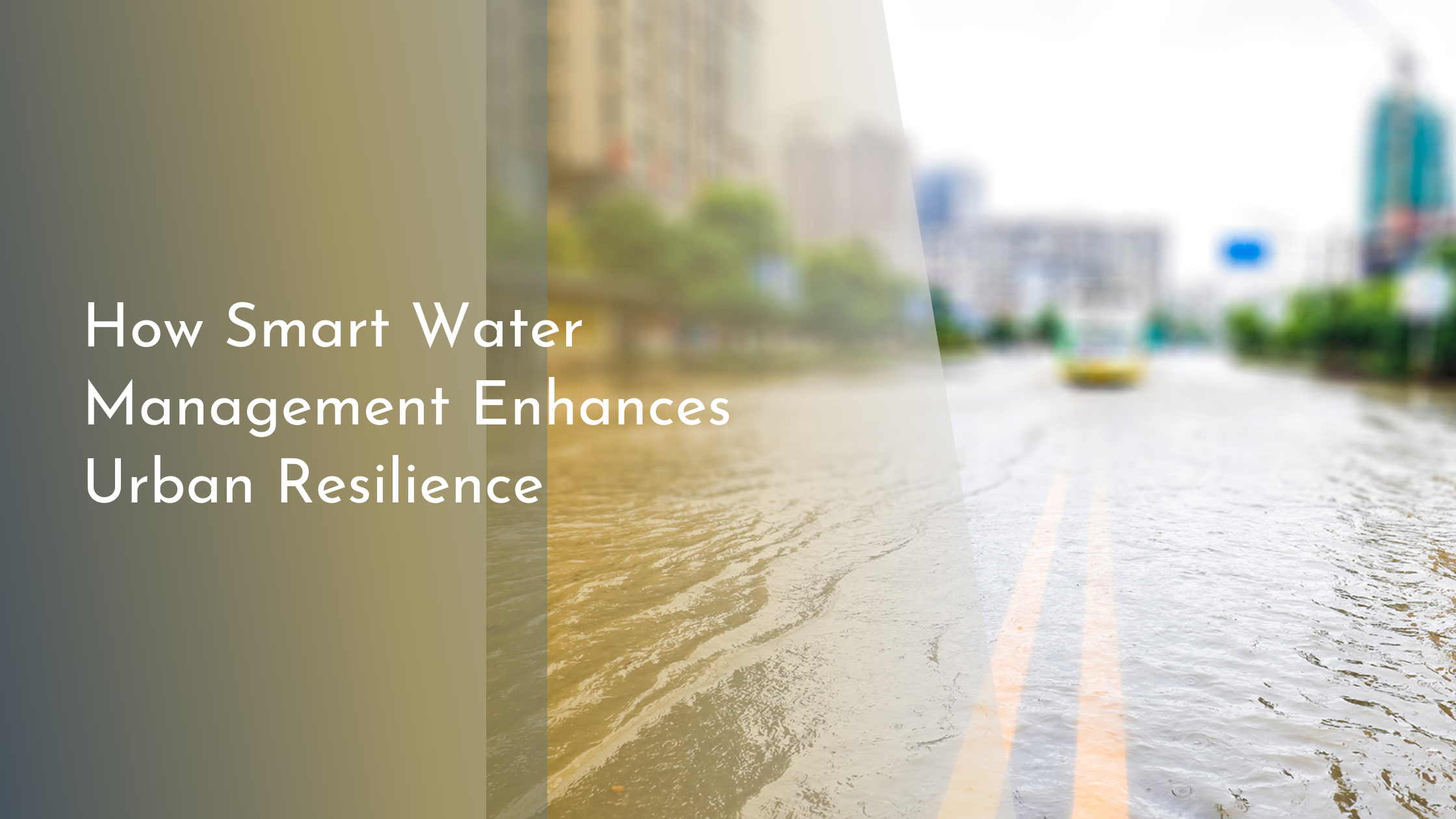How Smart Water Management Enhances Urban Resilience
In today’s rapidly urbanizing world, cities face heightened challenges in managing their water resources effectively. With climate change intensifying weather extremes and populations swelling, urban water systems are under unprecedented pressure. Fortunately, smart water management offers a beacon of hope, promising to enhance urban resilience through innovative, tech-driven solutions. By integrating advanced technologies and efficient practices, cities can safeguard their water supply, prevent water wastage, and ensure sustainable urban development.
Understanding Urban Water Challenges
Urban areas are experiencing an increase in population density, leading to higher water demand and pressure on existing water infrastructure. In many cities, aging systems struggle to cope with this demand, resulting in frequent leaks and water loss. Furthermore, climate change exacerbates these challenges by causing unpredictable weather patterns, leading to either water scarcity during droughts or overwhelming the system during floods. Addressing these issues requires a comprehensive understanding of the unique water challenges faced by urban centers.
Additionally, pollution poses a significant threat to urban water quality. Industrial effluents, agricultural runoff, and untreated sewage often contaminate water sources, making them unsafe for consumption and damaging aquatic ecosystems. Cities must tackle these pollution issues while balancing the competing demands of residential, industrial, and agricultural water use. Effective water management in urban areas requires a multi-faceted approach, taking into account the challenges of infrastructure, climate change, and pollution.
Innovative Solutions for Water Efficiency
One of the most effective ways to enhance urban resilience is by implementing water efficiency measures. Water conservation programs, such as promoting the use of low-flow fixtures and encouraging water-saving habits among residents, can significantly reduce water consumption. Additionally, cities can invest in rainwater harvesting systems and greywater recycling to optimize their water use. By capturing and reusing water, urban areas can lessen their dependence on external water sources and improve their overall water efficiency.
Moreover, green infrastructure solutions, like permeable pavements, green roofs, and urban wetlands, offer sustainable alternatives to traditional water management. These systems naturally absorb and filter rainwater, reducing runoff and helping mitigate flood risks. By integrating green infrastructure with existing urban landscapes, cities can enhance their resilience to water-related challenges while also promoting biodiversity and improving air quality. Innovative solutions in water management are not only efficient but also contribute to the overall sustainability of urban areas.
Technologies Driving Smart Water Management
The proliferation of advanced technologies is at the heart of smart water management. Internet of Things (IoT) devices and sensors allow for real-time monitoring of water systems, enabling cities to detect leaks and inefficiencies promptly. By incorporating data analytics, these systems can predict water demand patterns, optimize resource allocation, and prevent wastage. Such predictive capabilities ensure that cities can respond swiftly to any water-related issues, thus enhancing their resilience and operational efficiency.
In addition to IoT solutions, smart water meters empower consumers to track their water usage and identify areas for improvement. This transparency encourages residents to adopt water-saving habits, ultimately reducing demand. Artificial intelligence (AI) and machine learning algorithms further enhance smart water systems by providing insights into complex water dynamics, helping cities make informed decisions about resource management. These technologies not only improve water efficiency but also pave the way for adaptive and resilient urban water systems.
Benefits of Smart Water Systems for Cities
The adoption of smart water systems provides numerous benefits for urban areas, starting with enhanced resilience to environmental challenges. By improving water efficiency and reducing wastage, cities can better withstand the impacts of climate change, including droughts and floods. Smart systems also enable cities to optimize their water resources, ensuring a reliable supply for all residents and reducing the need for costly infrastructure expansion.
Moreover, smart water management offers economic advantages. By minimizing water loss and improving operational efficiencies, cities can reduce costs associated with water treatment and distribution. These savings can be redirected towards other essential services, fostering overall urban development. Additionally, smart water systems promote environmental sustainability by reducing the strain on natural water bodies and promoting the reuse of resources. As a result, cities that embrace smart water management not only safeguard their future but also contribute to a healthier planet.
In conclusion, smart water management is an essential pillar of urban resilience in the face of growing environmental and demographic pressures. By addressing urban water challenges through innovative solutions and advanced technologies, cities can ensure a sustainable and secure water future. The transition to smart water systems brings numerous benefits, from increased efficiency and economic savings to environmental conservation and enhanced resilience. As we move forward, embracing smart water management will be crucial in building cities that are not only resilient but also thriving and sustainable.

